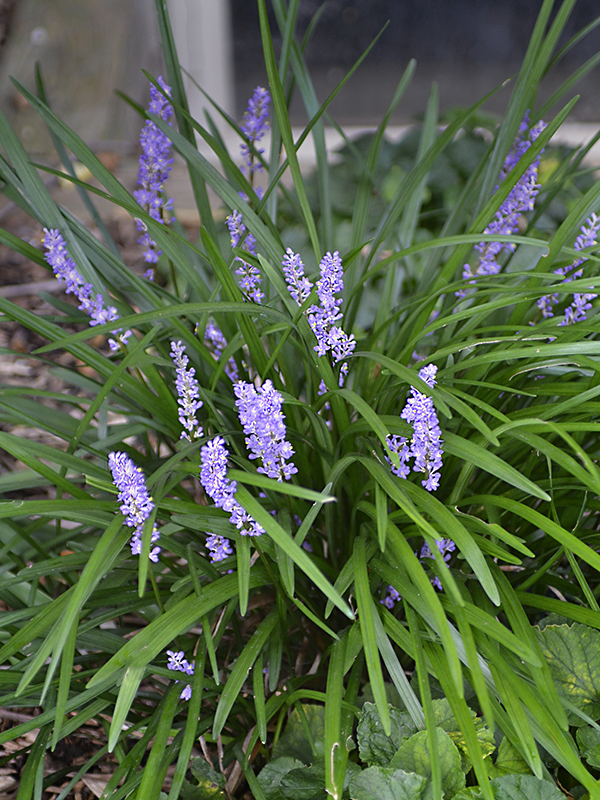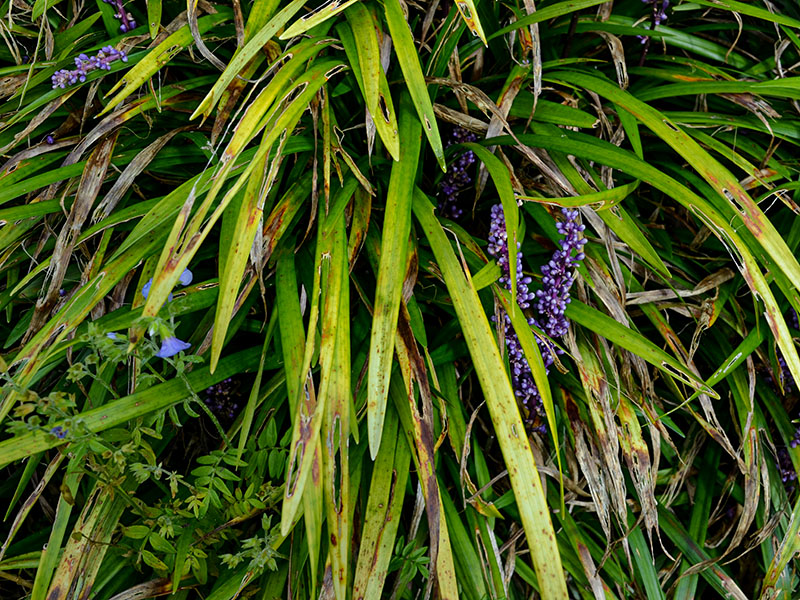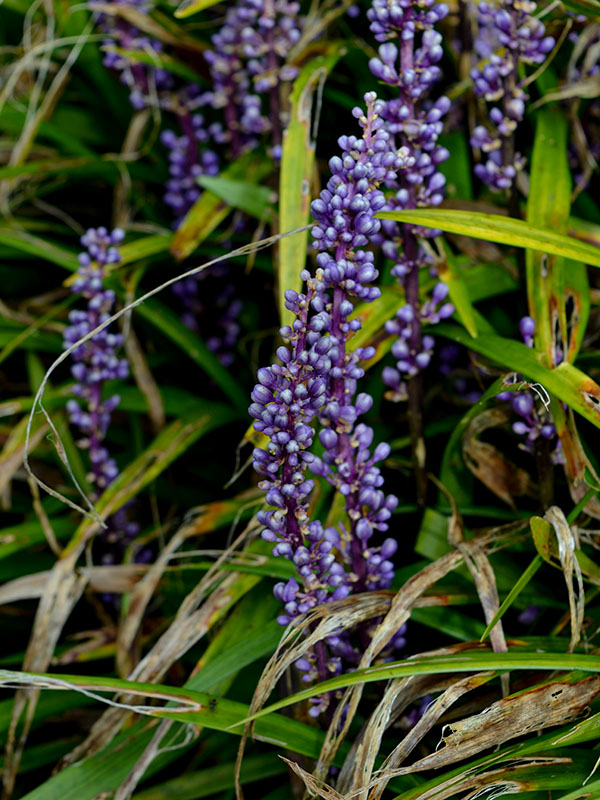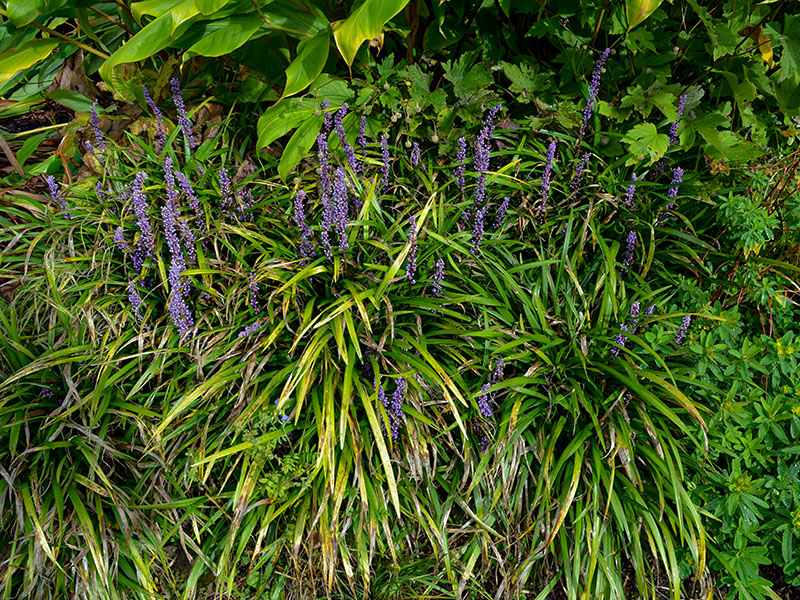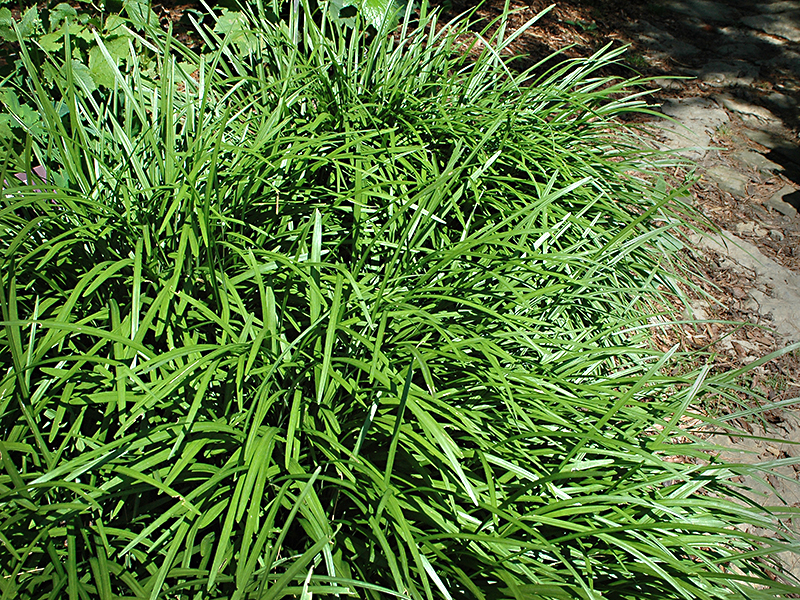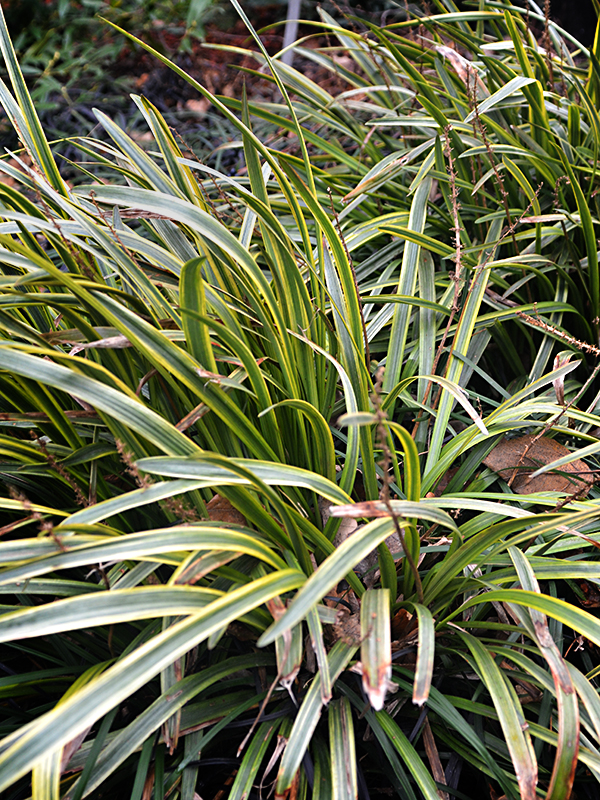
Perennials > Liriope > Liriope muscari > Liriope muscari
Liriope muscari
Lily Turf
Origin: China, Japan, and Taiwan.
| Family |
| Asparagaceae |
| Genus |
| Liriope |
| Species |
| muscari |
| Category |
| Perennials |
| Synonyms |
| Liriope graminifolia (misapplied), Liriope platyphylla, Ophiopogon graminifolius |
| USDA Hardiness Zone |
| 5 - 10 |
| Canadian Hardiness Zone |
| 4a - 8a |
| RHS Hardiness Zone |
| H2 - H7 |
| Temperature (°C) |
| -29 - 4 |
| Temperature (°F) |
| -20 - 40 |
| Height |
| 30 - 50 cm |
| Spread |
| 20 - 30 cm |
Photographs
Description and Growing Information
Flowering Period
| General Description |
| Liriope muscari is a tuberous, evergreen, clumping herbaceous perennial with long, narrow, leathery leaves and erect spikes of dense purple flowers. |
| Landscape |
| Makes a good border or for underplanting. Also a suitable container and patio plant. Useful for planting on banks and slopes or massed for ground cover. |
| Cultivation |
| Grow in a sheltered location, part to full shade, in moist, well-drained, acidic soil. Will tolerate a more neutral soil pH. Established plants are drought tolerant. In spring, remove dead leaves to the ground to encourage new growth. easily grown in average, medium, well-drained but preferably moist soils with partial shade. The species is tolerant to soil and light variance,as well as humidity, heat and drought, but the leaves, despite being technically evergreen, will turn brown in cold winters such as those found in Canada and the northern parts of the United States of America. |
| Growth |
| Medium |
| ID Characteristic |
| Liriope muscari is a grass-like plant that has flowers resembling those of grape hyacinth. |
| Pests |
| No serious pests or diseases of note. Young growth is susceptible to slugs. Tolerant to drought, erosion, and air pollution. |
| Leaf Description |
| Long, narrow, arching, dark green. The plant is evergreen but the leaves will turn brown in cold winters such as those found in Canada and the northern parts of the United States of America. |
| Flower Description |
| Small, globose, violet-purple, clustered longitudinally about erect spikes up to 30 cm tall. |
| Fruit Description |
| Black berries. |
| Notable Specimens |
| Lanhydrock Gardens, Cornwall, England. |
| Propagation |
| In spring, by seed sown in pots outside or by division. |
